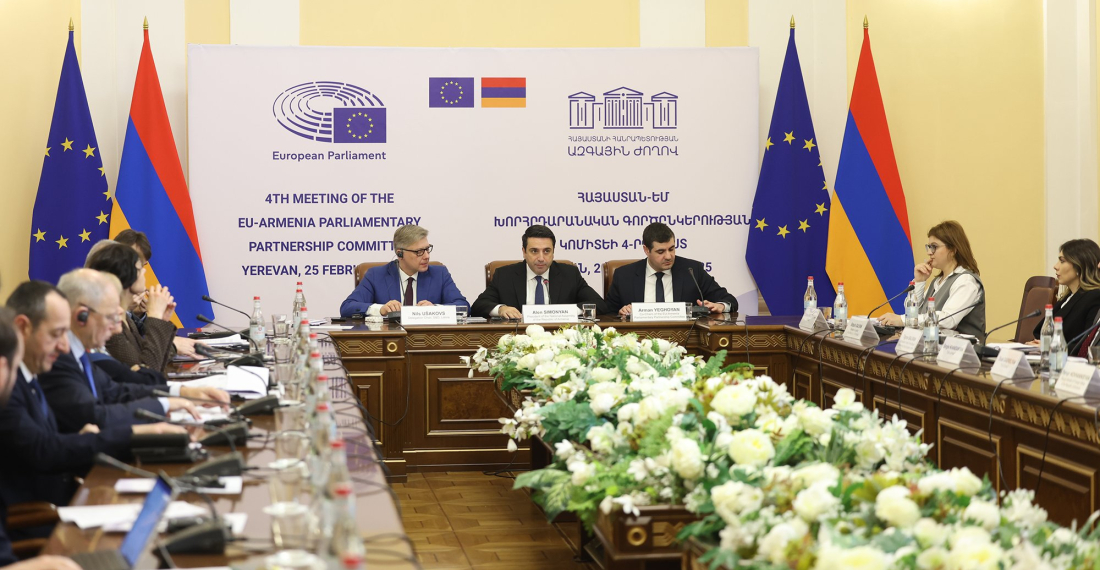Speaking at a press conference after the 4th Meeting of EU-Armenia Parliamentary Partnership Committee in Yerevan, MEP Nils Ušakovs said that the process of Armenia’s accession to the European Union will require significant reforms over a long time. Ušakovs, co-chair of the committee, said that the reforms will strengthen the country and enable it to make more confident decisions regarding its future.
MEP Ušakovs said “It is clear that Armenia will not join the EU neither in this yearend nor the next. That process takes time and substantive efforts. However, any reform that Armenia would do on the path of joining the EU would make Armenia stronger, and as a result the country will be in a position where it wants to see itself,” he said.
If any politician vows that Armenia can join the EU in just a few years then it can be considered an exaggerated expectation, he stressed. “That process takes years, like it was in the cases of Latvia, Lithuania, Slovakia and Czechia. My country, Latvia, joined the EU after years of efforts, and the same goes for Armenia. The realistic timeframes could be five, seven or ten years,” he said.
The necessary reforms are not a ‘wish-list’ of the EU, but rather changes that are important for any society, the MEP said. “Strengthening of the rule of law, increasing the level of welfare and systemic reforms are of vital importance for Armenia regardless of which alliance the country will chose to cooperate with in the future,” he said.
The MEP said the Armenian society must be presented with realistic expectations in order not to have disappointment in the future and if the Armenian people choose the path of joining the EU then Armenia will be able to successfully complete the process. The Armenian parliament adopted the bill on EU accession at first reading earlier in February.
MEP Ušakovs also spoke on the European Parliament’s supports for Armenia’s agenda of peace during the EU-Armenia Parliamentary Partnership Committee saying that it is difficult to understand and comment on Azerbaijan’s reaction to Armenia’s agenda of peace.
He highlighted the development of security cooperation between the EU and Armenia: “The European Union’s civilian mission [EUMA] has helped stabilize the situation on the Armenia-Azerbaijan border. Of course, Baku and Moscow are targeting this mission and making accusations. But a question arises, what kind of a threat can an unarmed, civilian mission pose? They are trying to view this as an obstacle for the peace treaty,” MEP Ušakovs said.
Ušakovs said that while Azerbaijan is refusing to cooperate and is seeking to end EUMA, Armenia has presented a proposal on mutual arms control mechanisms. “And this is an example that Armenia is committed to the agenda of peace. And we support this. But it is very difficult to understand and comment on Azerbaijan’s reaction to all of this,” he said.






